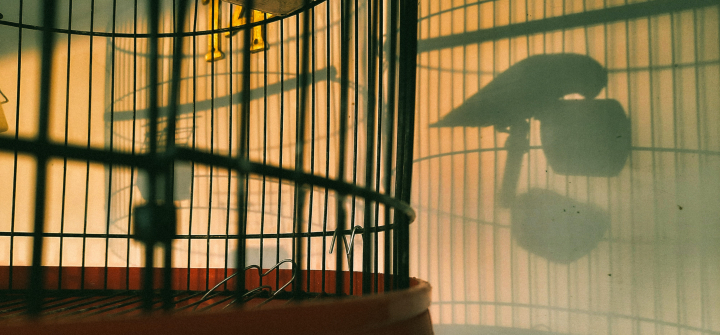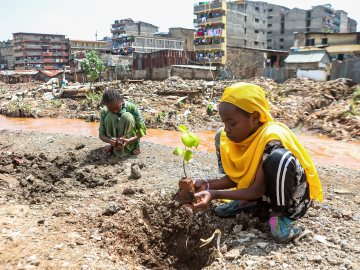I Use My ADHD to Blast Through the Boundaries of Conventional Thinking
I have glasses of water that are spaced throughout my house. Now I tell myself this is because of my desire to stay hydrated. The reality is that I was drinking water, got tired of drinking, and put the cup down and forgot about it. Rinse and repeat.
Now, I find the new cup a pleasant surprise. My partner disagrees.
I am an immunoengineer and on a daily basis I talk to engineers about immunology who have no background in it. So I like to use analogies—like an immune response is like trying to get your family or friends to agree to go to the same party at the right time. So many different personalities but all important for making the whole outing a success.
Once, I was taking one of those standardized tests in school. I finished early so I started writing a novel. It was pretty interesting. I didn’t finish it though, because I couldn't figure out the climax and resolution. I keep saying I’ll get back to it.
I’m the queen of making grand ideas.
My dad is a paraplegic. He was born with cerebral palsy. He can’t move his legs but he still insists on wearing crutches to get around. We got him a motorized chair. It had purple streaks on it so I christened it “purple rain”. I thought making it sound cool like Prince would make him want to use it but it didn’t.
Macrophages are my favorite immune cell. They are versatile, super responsive to their environment. Sometimes, I joke and say they are the Black women of the immune system.
My dad really has a special way of using his crutches. Sure they help him get around but they also help him tie his suit ties, put on socks, take off his shoes, retrieve objects that are far away, and if you are standing close enough, he uses it as a weapon. Okay playfully, he might tap you on the back side.
You have to use all of the tools that you have.
I have ADHD. I was diagnosed as an adult. It means I jump around a lot. That I connect things that may not seem connected. I speak in fragments. In analogies. But they combine and recombine into something big. Something other people might not have seen, but that has value.
Which is like macrophages. The most adaptable cells in the immune system. Right in the middle of the party, absorbing the chaos. They’re processing all of the information from their friends and helping everyone gel together.
Which is also like my Dad. And anyone else who uses the fair and unfair advantages of life. Who adapts in the face of challenges.
ADHD feels like a cage I can’t escape. When other people talk, I force myself to focus on their eye color and tell myself “it's not my turn to talk!” I use timers to prevent myself from hyperfocusing on a wikipedia article that I wasn’t even looking for. And I apologize to my partner who loves me but gets frustrated about all the water glasses, which I admit are much too close to his computer.
But ADHD also blasts through the boundaries of conventional thinking, making a playground out of chaos. I studied physics, and then got a degree in biomedical engineering, and then went into the field of immunology, and I thought all of that was reasonable. The nonlinear choice was the obvious one–for my career path and for my ideas.
You might not think this story is about you. My wish is you decide it is. Because you may not be as normal as you think you are. When I talk to people, they tell me things they don’t have names for yet. Every person’s way of seeing the world is weird and unique and full of secret hacks. Like our immune system, science won’t work unless we have all kinds of people and all kinds of brains coming to the party.
Elizabeth Wayne, PhD, MS, is an assistant professor of Biomedical and Chemical Engineering at Carnegie Mellon University.
She shared this story at the “Living Science: A Story Slam" during the 2023 American Association for the Advancement of Science conference. The event was hosted by Jonathan Adler and Gillian Epstein, cofounders of The Story Lab at the Olin College of Engineering.
Read more “Living Science” stories here.
Join the 50,000+ subscribers in 170+ countries who rely on Global Health NOW summaries and exclusive articles for the latest public health news. Sign up for our free weekday newsletter, and please share the link with friends and colleagues.
Cristian Siallagan / unsplash





